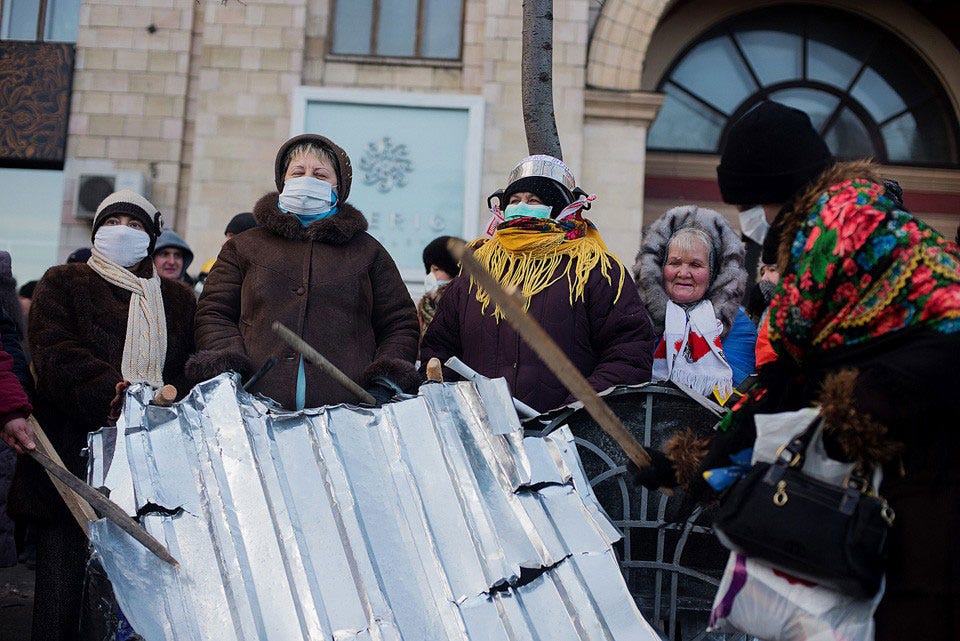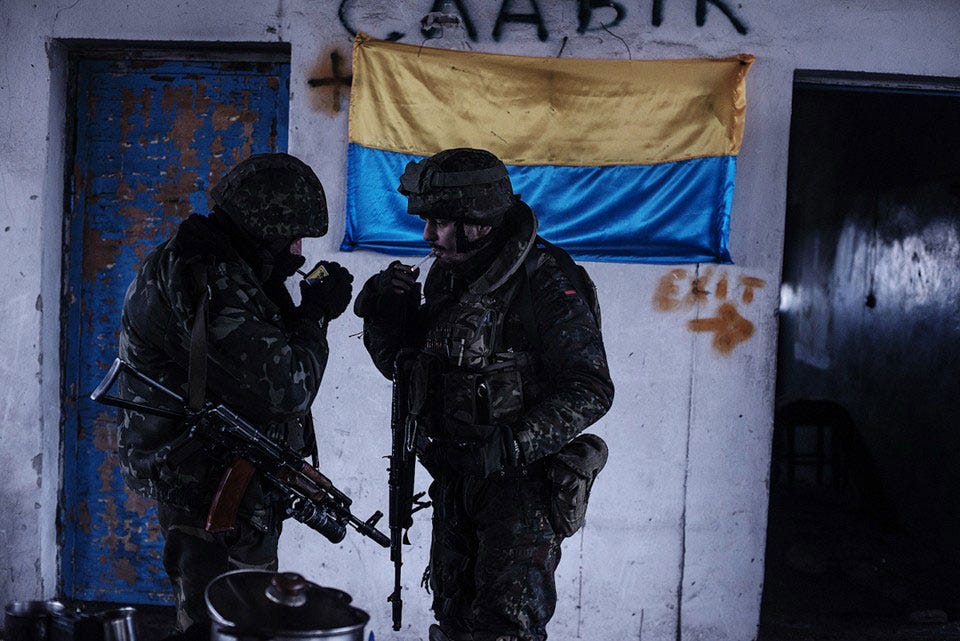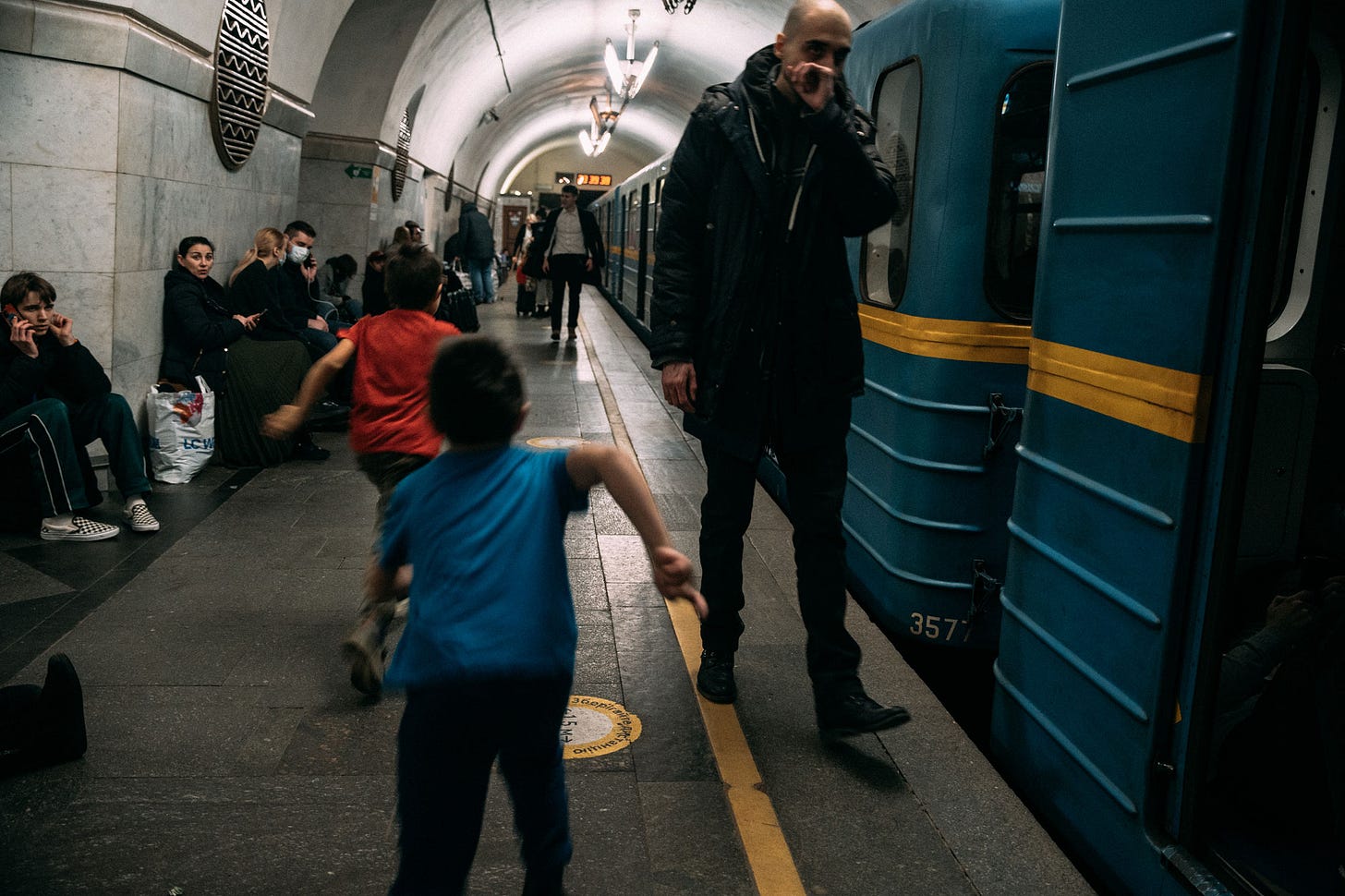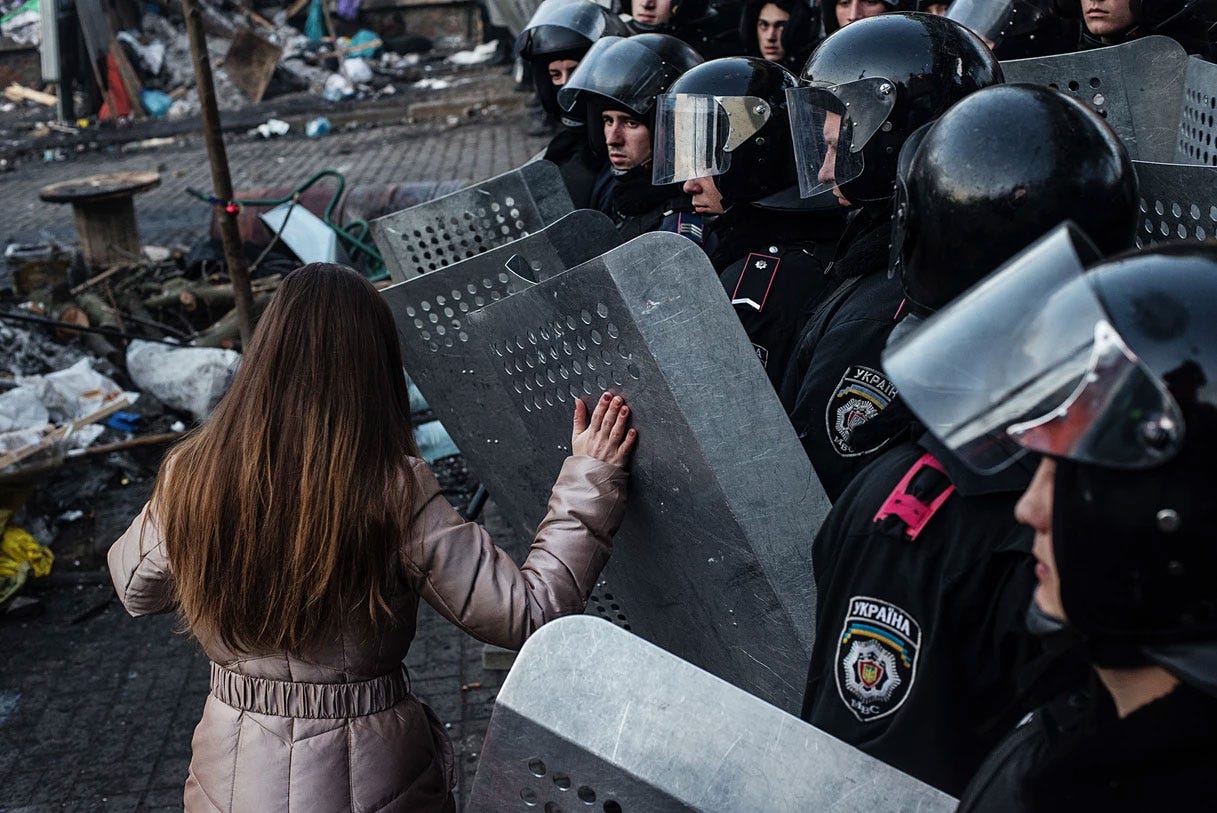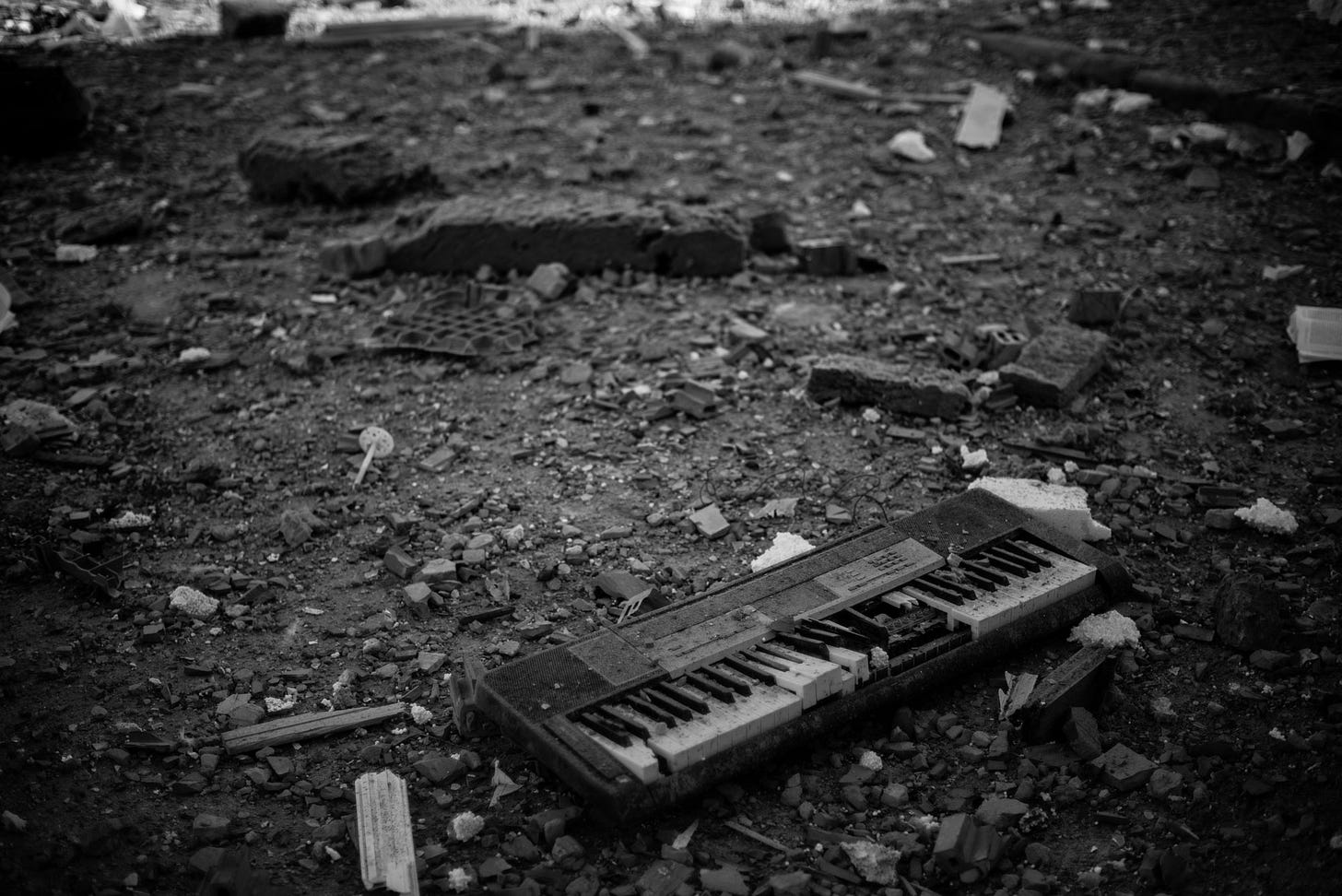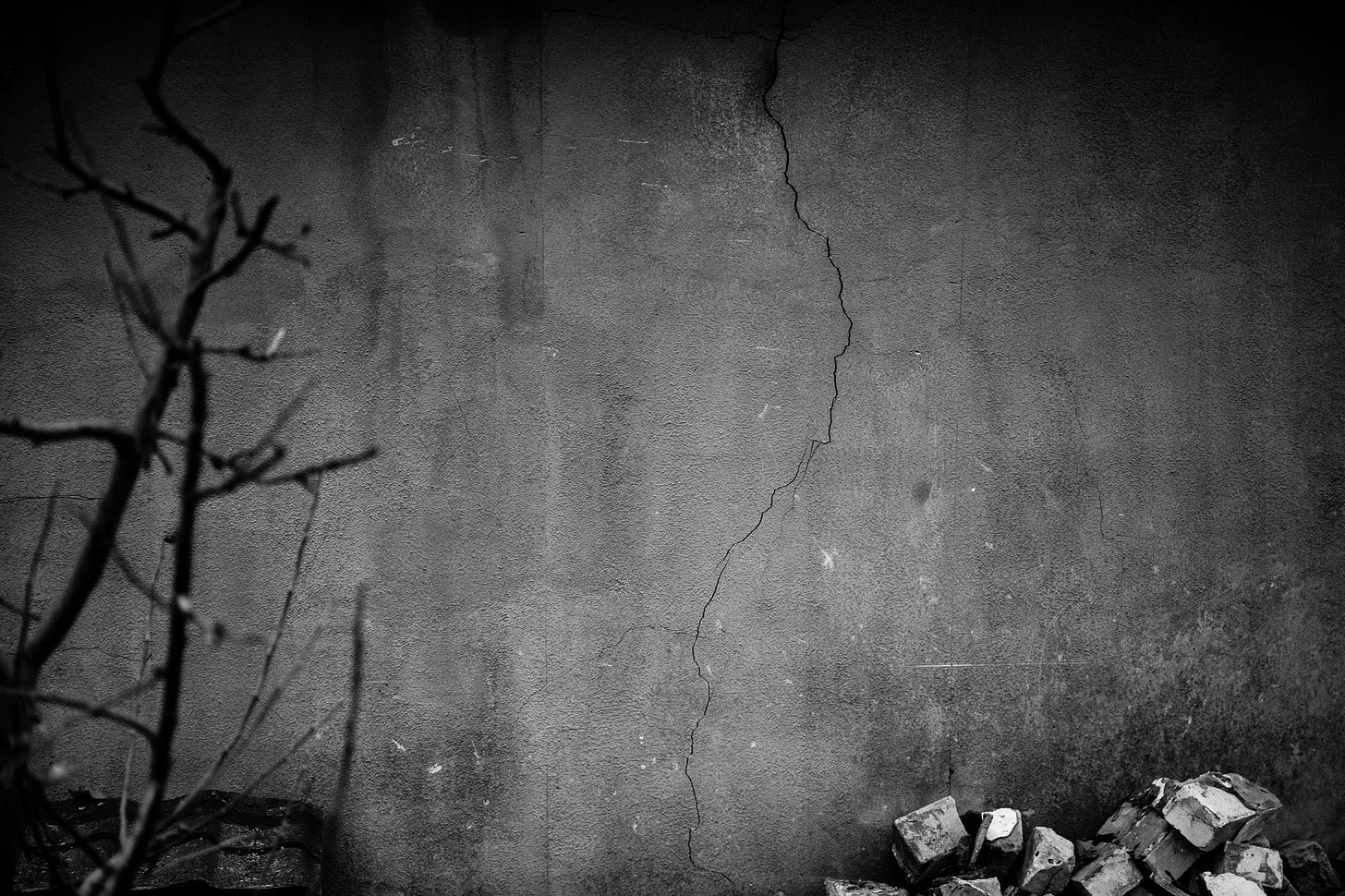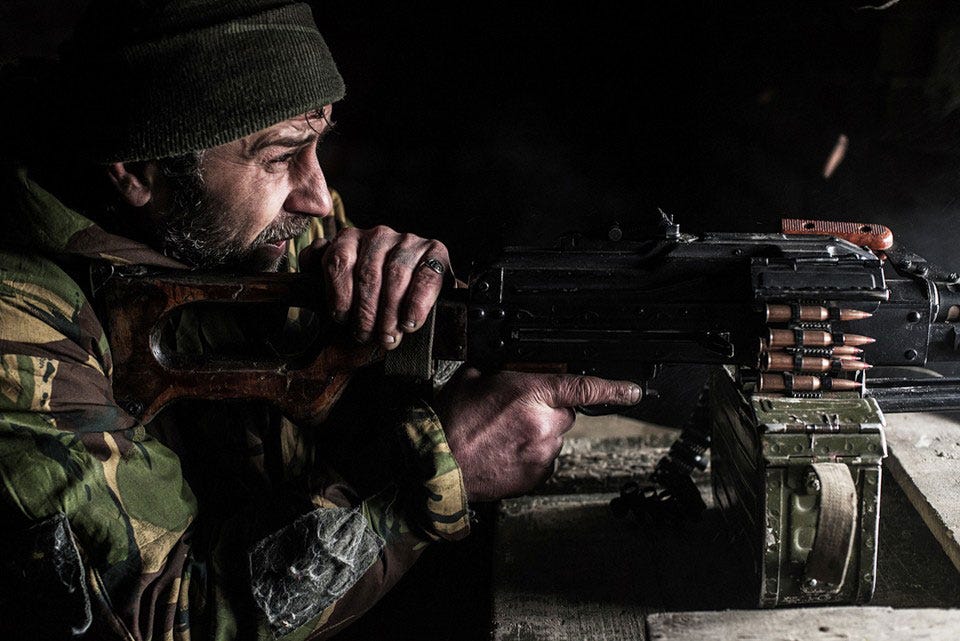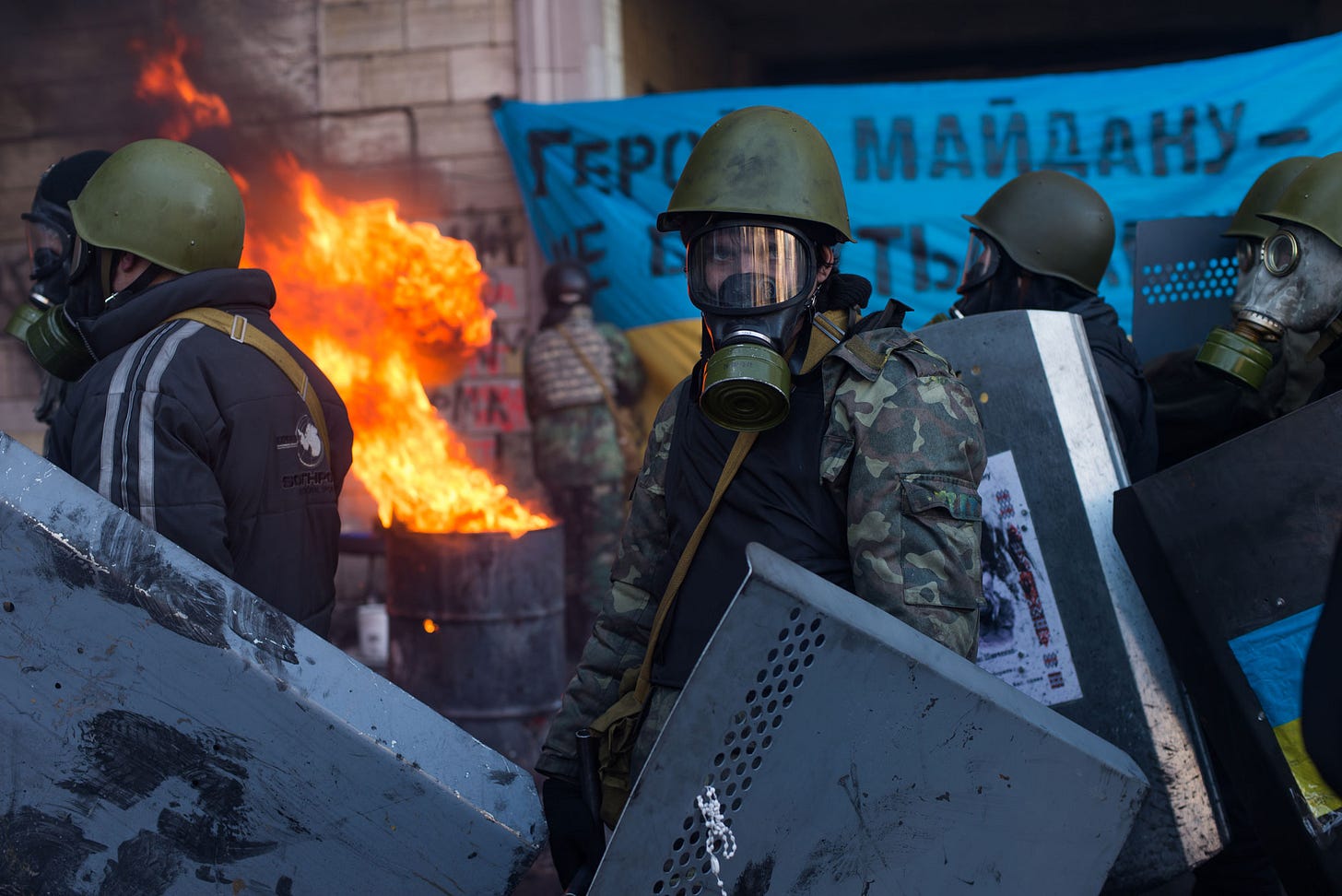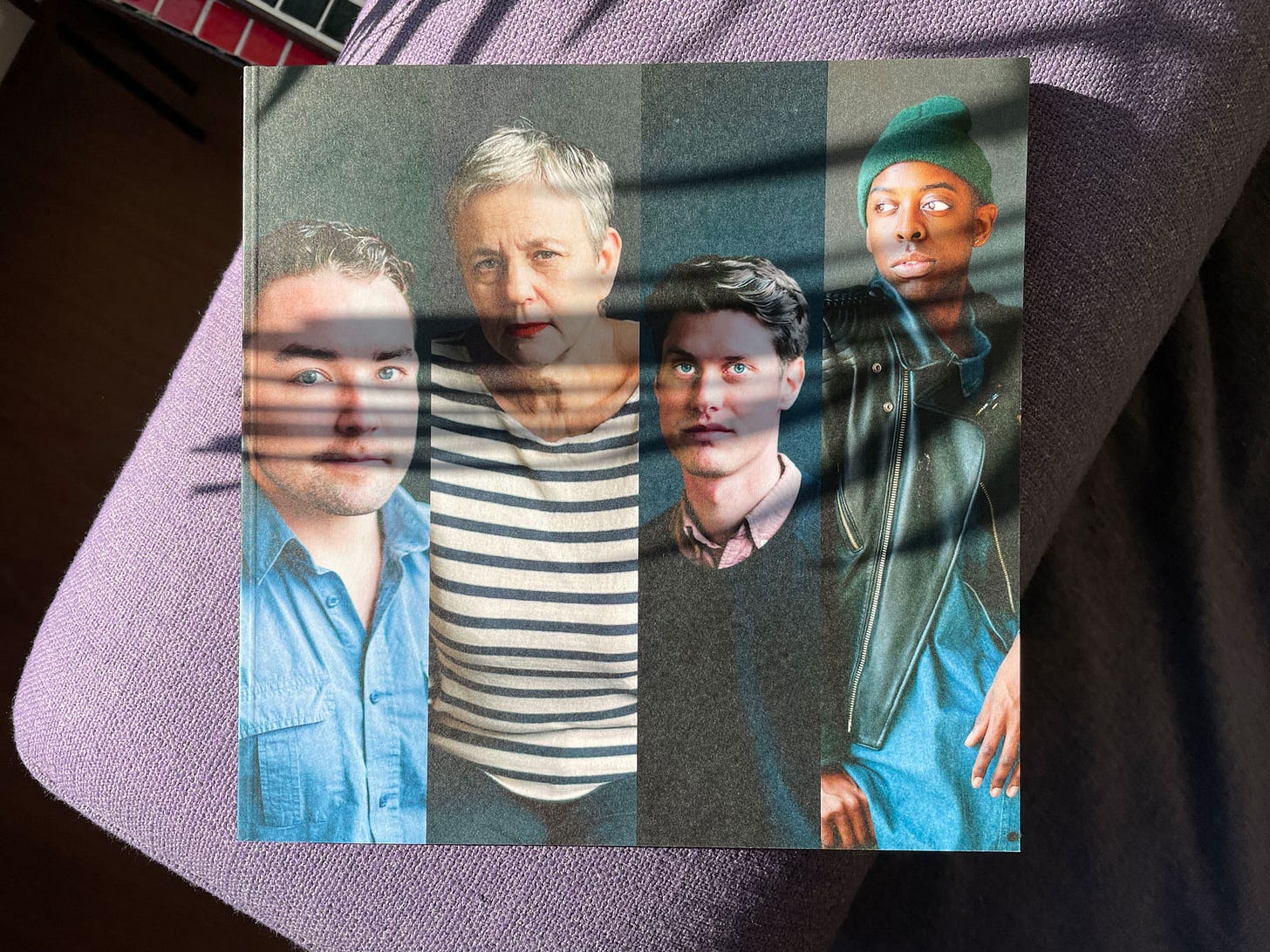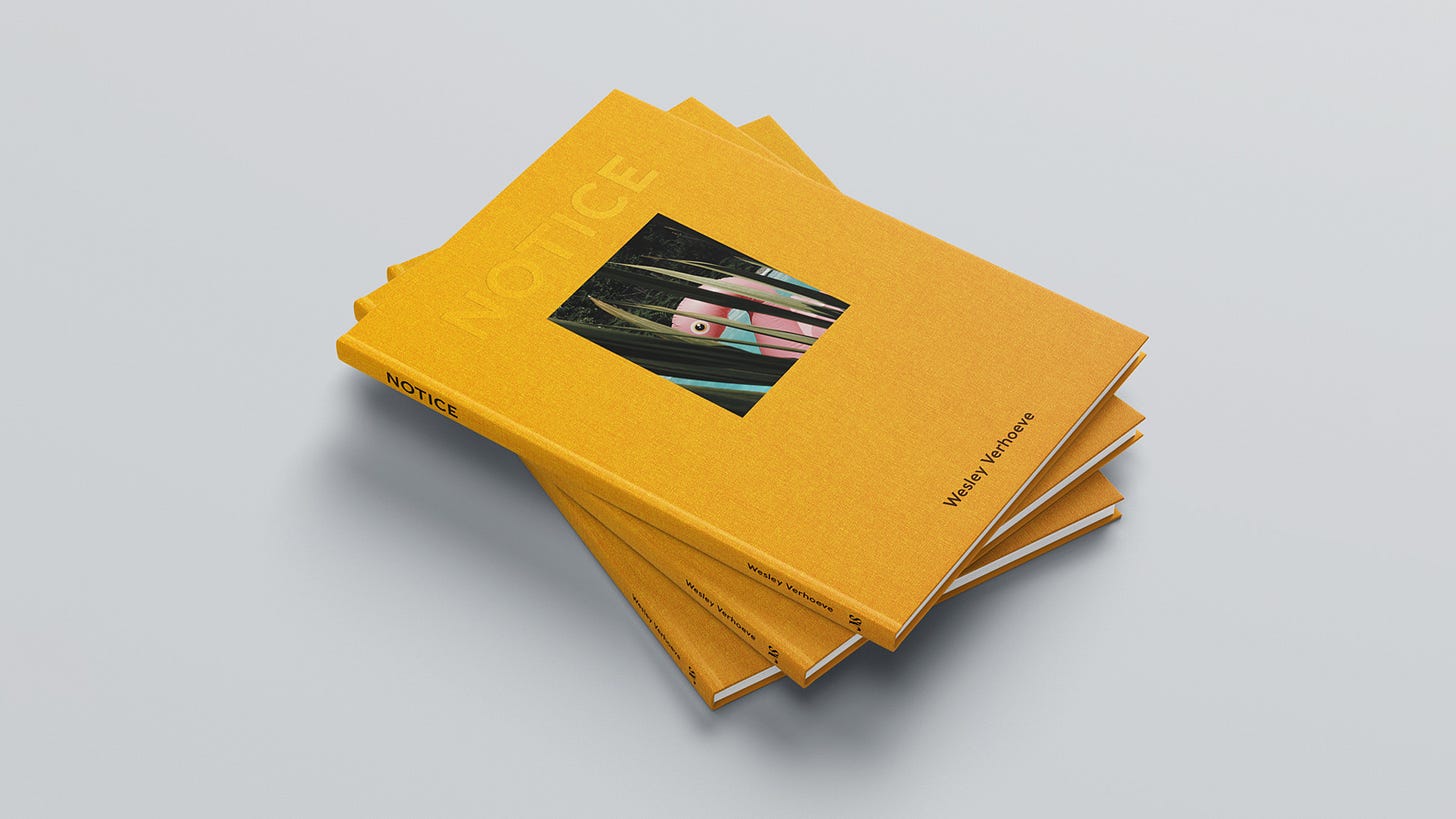Process 051 ☼ Talking To A Photojournalist in Ukraine
Giveaway: Limited Edition Photo Book
Dear friends,
Let me start by saying thank you to everyone who filled out last week’s Process Reader Survey. It’s fun, helpful and moving to read through hundreds of thoughtful entries.
I will share some of the results in the future but I can already tell it is going to make Process more helpful, more fun, and more inspiring. The giveaway aspect of the survey is over but you can still fill it out just to help: Process Reader Survey.
In today’s letter I have a conversation with Julia Kochetova, a photographer and documentary filmmaker based in Kyiv who is currently documenting the war.
Because of the serious nature of today’s issue it didn’t feel right to do a normal jolly giveaway so instead I’ve made available a rare copy of a limited edition book I co-created about love, it being the opposite of war.
Who is Julia Kochetova?
Julia Kochetova is a Ukrainian photojournalist and filmmaker based in Kyiv, Ukraine. She focuses on human stories and in her own words how: “the start and the end of everything is hidden inside a person.”
Over the past ten days I have been using my Instagram Stories to share images by over fifty photojournalists on the ground in Ukraine. Most of these brave women and men travel to Ukraine from Europe and the United States to do this important work as freelancers or staff photographers for the publications that employ them.
Others are simply photographers living in Ukraine who suddenly live in a country at war. Like Julia.
Julia studied at the Mohyla School of Journalism and has previously covered the Maidan Revolution, the annexation of Crimea and the Donbass war with images published by The Guardian, National Geographic, and Zeit.
Below you can read a short conversation we had via email and DM’s, interspersed with her photographs from the current and previous conflicts. The conversation was slightly edited for clarity.
A Conversation With Julia, a Conflict Photographer
Wesley: Julia, thank you for talking to me. How are you doing right now, personally?
Julia: I’m fine. I just accept the fact that when the war is going on - people you love will die. It’s terrible, painful, but that’s something you need to accept.
W: What are ways in which you take care of yourself emotionally and mentally while you’re doing this work?
J: I’m a sports enthusiast, so it’s always - plank pose, push-ups, abs. I meditate. I write morning pages, about 30 mins every day for observing something beautiful. I read a book for at least 20 minutes each day. Hot showers. Meditate and plank pose again.
W: Can you describe what the practical side of conflict photography looks like for you? How do you know where to go and what to photograph?
J: It’s an ever-changing environment. In the moment I ask myself: “Why am I taking this picture?” and if I don’t have an accurate answer I skip it. If I have any doubts - I move on and don’t even try.
To know where to go I check local and international media, do research through social media, and have a network of contacts. I always try to go deeper and I try to predict. I always trust myself if I’ve got a bad feeling.
I focus on taking photos of humans on the edge, people in transition, the “in between” moments. It directs me everywhere. And of course - searching for the best light and angle. Then - take two steps back and make one more picture. Fin!
I avoid crowds and keep an eye in all directions. I imagine it’s like being a driver - you should concentrate on the whole frame, not only the one in front of your lens.
There is also a super direct rule but it should be mentioned: avoid being between two armies. As they say: “The best picture means nothing if it’s the last one, huh”?
W: What does your work flow look like? Do you shoot all day and then download and edit and upload in the evening?
J: It’s never the same schedule, it all depends on the story and circumstances. During the revolution in 2014 I used to live and sleep in the media center. When filming on the front line I just take my camera everywhere and edit after I get out of the front line. Now I’m getting older and really need a nice coffee before and do a quick edit right after the taking pictures.
W: Is it hard to find reliable internet to upload pictures to your clients?
J: The internet is a pain in the ass, really. I usually try to collaborate with colleagues from TV-channels to deal with that.
W: What role does social media play during your day-to-day work at the moment?
J: It’s the easiest and fastest and most naked way to tell the truth. It gives me immediate feedback, possible collaborations and makes your voice louder.
I’ve faced an ongoing Russian invasion during an assignment in Donbas and felt frustrated and lost. So I took a selfie and posted what I was thinking about and what I wanted to tell the world.
It reached over one million people and led to new assignments and enormous support. People really do care what’s happening in Ukraine. I truly believe in new media. You could run your own media - that's what drives me most.
W: Are you able to think in technical terms when you’re out taking photos? Are you able to consider composition and framing or is it more about documenting important moments?
J: For sure I’m checking technical settings when I’m in action. The nice thing is that as you shoot more this process becomes easier. But I’m always focused both on technical stuff and moments in a frame.
W: What is your motivation for doing this work? What keeps you going?
J: I love what I do and what I love. No secrets. My camera gives me an amazing opportunity to live an endless quantity of lifes, telling stories from all over the world.
W: Do you get scared while working or are you able to turn that part of your brain off?
J: Of course, fear always exists. One of the sports I like doing is boxing and it has given me a nice lesson to follow: as soon as you start to fight you should concentrate, be ready to defend, to attack and to step back. If you are on the ground - you should listen to your fear as well. Thanks to fear I’m still alive.
W: Are you able to stay organizes and keep notes, or does that get handled on the client side so you can focus on taking photos?
J: I've been photographing for twelve years and directing documentaries for the last five years. When you are a director you have to manage all types of work at the same time. So for me it’s not a problem to take notes, make pictures, film video with an extra camera and check the sound.
I really believe that we live in an era of small and dynamic crews. Especially if we are talking about conflict zones. You should manage your safety at the same moment - that’s something that goes further than notes.
W: Did you set out to be a conflict photographer, or was it through circumstances that you found yourself doing this kind of work?
J: In Ukraine we used to say that we are the generation of war and revolution. This choice was made through circumstances but has gifted me the best version of myself. Even if it's a stressful, unregulated, poisoned way of living. It's an honor to tell the story of my country in the first person.
To see Julia’s work visit her website and follow along with her on Instagram. To see the work of more than fifty other photographers on the ground in Ukraine right now visit my IG profile and click through the saved Highlight called “Ukraine Journos”.
That’s it for this week. I hope this conversation gave you some insight into what it’s like to be a photojournalist working in the middle of a war. I may share more conversations like this in the future.
Keep shooting and take good care of yourselves and others.
Wesley
Process Giveaway
It didn’t feel right to do an exuberant fun giveaway for this issue so instead I went through my archives and found one of the last remaining copies of What We Think We Know About Love, a 2017 book collecting photos and interviews with a diverse set of people about the role of love in their lives.
This project was a collaboration with my friend Mikki Brammer and we exhibited the work in Brooklyn and Los Angeles. The book was made in a limited run of 150 and was only available at those two exhibits. I have a few personal copies left and one will go to a reader that I will randomly select from your entries.
To enter email me at hello@wesley.co (please don’t reply to this note but send a separate email) before 11pm EST on March 9th and answer the following question:
What question would you ask a conflict photographer if you had the chance?
The winner will be randomly drawn and notified. This giveaway is for Process subscribers only. Subscribe by clicking the button below:
If you enjoyed this issue of Process it would mean a lot if you shared it with your friends. Click below and tell your friends about it.
If you’re a new reader, browse the Process archives here.
Process is a weekly letter from Wesley Verhoeve. If you’d like to support what I do here click the button below to order my new book NOTICE.
Follow along at @wesley.


